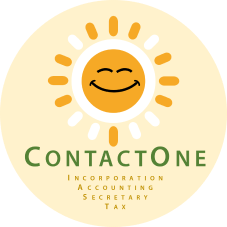
A Dormant Company still needs to lodged the Annual Return to ACRA annually. There are no exemptions for this. If you do not file for your Annual Return, you will risk paying unnecessary penalties for late or non-filing. This is especially not worthwhile, given that your company is dormant.
A Dormant Company need to carry on submitting its Tax Returns annually unless they have written in to IRAS and is granted a Waiver to File Taxes.

No doubt that the Company is wholly owned by you. However, a Company is a separate legal entity by itself. Any amounts that you utilize from the Company funds for your personal benefits can be treated as an income benefit to you, meaning that you are liable for personal taxes on these drawings.
There is a need to segregate company expenses from your own personal expenditures. It is definitely unwise to include personal expenses within your corporate transactions, as you will have a hard time trying to separate these expenses from actual company transactions.

For businesses to be transaction by directors, usually a simple majority will do, unless it is specifically agreed and written into any resolutions or the Articles of Association of the Company that a minimum percentage or number of votes need to be obtained prior to the carrying out of the matter discussed.
For businesses to be transacted by shareholders with voting rights, there are variations in minimum majority required, as prescribed by the Companies Act. The 2 main majority baselines are simple majority (>50%) and 75% majority. Ordinary Resolutions will require simple majority while Special Resolutions will require 75% majority. Examples of Special Resolutions include Alteration of Objects in Memorandum, Alteration of Articles, Change of Company Name, Reduction in Share Capital, Voluntary Winding Up and Removal of Liquidator in a Voluntary Winding Up.

A Company is a separate legal entity with its own identity whereas a Sole Proprietorship (SP) is purely an extension of the owner’s identity. There are several distinctions between the 2, and the most important ones (in our opinion) to take note are:
1. A SP does not protect your personal assets, whereas to a certain degree, a Company will provide a protection against any claims for your personal assets.
2. Tax system is different for both, with SP being accounted for under the Personal Tax System and a Company reporting under the Corporate Tax System.
You may refer to our article on Comparison of Common Business Entities in Singapore for a clearer understanding of the differences between the two entities.

Lodgements made are, in essence, a notification of the changes to the Registrar of Companies. Strictly speaking, you are still not compliant with the Companies Act as the Act mandates that resolutions need to be passed by either the Directors or Shareholders of the Company (depending on what are the matters to be approved), before the Company proceed with the matter. As such, you must be adequately proficient with the requirements of the Act before attempting to make changes to the Company. Alternatively, you may wish to engage external help to help you manage your Corporate Secretarial matters.

